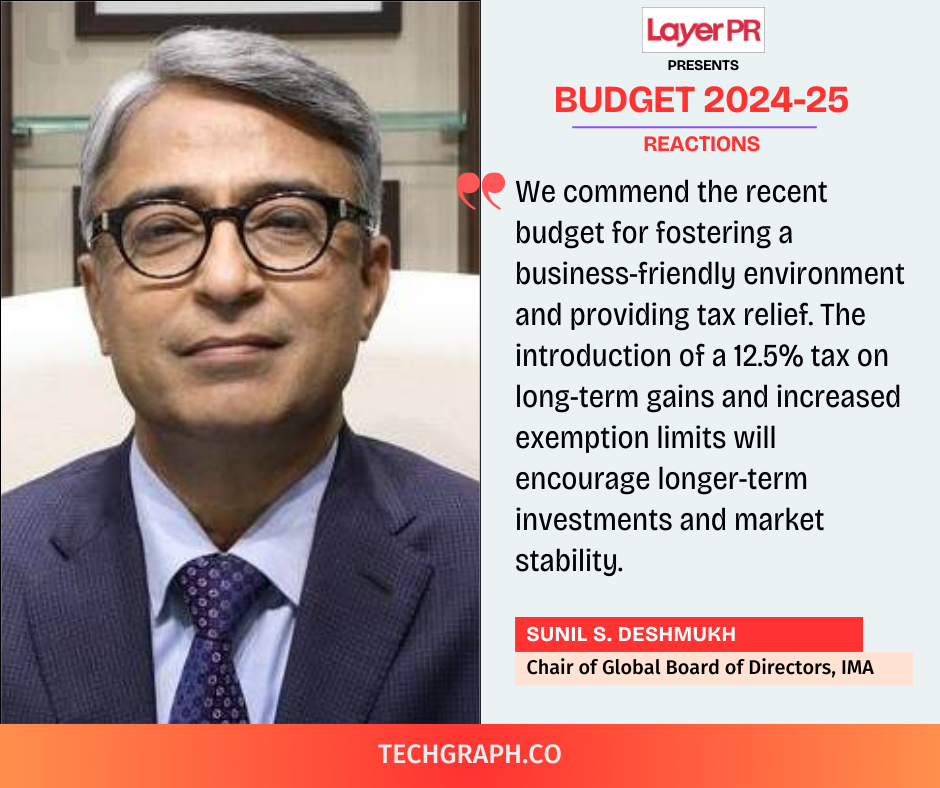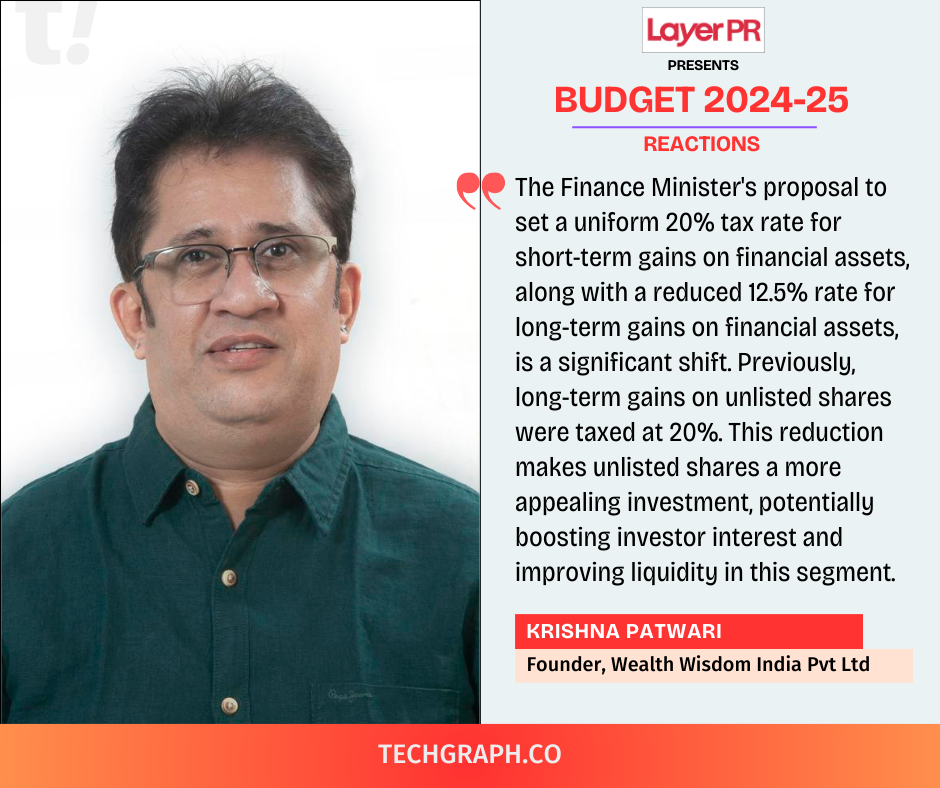The recent budget proposal unveiled by India’s Union Finance Minister, Nirmala Sitharaman, on July 23, 2024, has sparked a flurry of reactions from financial experts and industry leaders for its reforms in the reassessment and reopening of tax returns, reducing the period from 10 years to 6 years, including in search cases and for rationalization of differential stamp duty across states, which is expected to create a level playing field and make immovable property investments more attractive.
Additionally, the budget also revises long-term capital gains (LTCG) tax rates, increasing LTCG on shares from 10% to 12.5%, while lowering the rate on the sale of land, gold, and unlisted shares to 12.5% from 20%, despite the removal of indexation benefits.
Read the complete reaction from the experts on taxation:
Manoj Purohit, Partner & Leader, Financial Services Tax, Tax & Regulatory Services, BDO India

The rationalization of differential stamp duty levied across the states would ensure a level playing field and make the cost of investments in immovable property lucrative. Also, concessional rates for women investors would encourage investment by women and make them financially independent.
Harsh Shah, CEO, IndiGrid

We welcome this significant change in the rationalization of the long-term capital gain taxation for Business trusts in this budget. InvITs/REITs getting taxed at parity with equities will enhance their attractiveness for investors and will strengthen their position as platforms providing superior risk-adjusted returns. We believe that this will also enable InvITs and REITs to become part of stock exchange indices, which will add significant liquidity and momentum.
Swetha Kochar, Founder & Partner, PKC Management Consulting

A big relief on reassessment and reopening of returns filed for earlier years which has been reduced to 6 years as opposed to 10 years earlier, including in search cases. LTCG on shares has been increased from 10% to 12.5%. The period for non-financial assets to qualify as LTCG is brought down to 2 years. Lowering of LTCG rate on the sale of land/gold/unlisted shares to 12.5% in place of 20% is beneficial even though indexation is removed – overall will benefit most taxpayers. Overall, a big push on agri & employment.
Sunil S. Deshmukh, Chair of Global Board of Directors, IMA

We commend the recent budget for fostering a business-friendly environment and providing tax relief. The introduction of a 12.5% tax on long-term gains and increased exemption limits will encourage longer-term investments and market stability. Raising the exemption limit for capital gains on financial assets to ₹1.25 lakh per year will boost individual investor participation. The abolition of the ANGEL tax for all investors will stimulate startup investments.
Furthermore, reducing the corporate tax rate for foreign companies from 40% to 35% will attract more foreign investment. Additionally, Finance Minister Nirmala Sitharaman’s Budget 2024 announcement includes a ₹2 lakh crore package for employment and skilling.
With ₹1.48 lakh crores allocated to education, employment, and skill development, this initiative addresses job creation and skill enhancement. First-time workforce entrants will receive a direct transfer of up to ₹15,000, enhancing employability and stimulating economic growth.
Overall, these measures demonstrate a strong commitment to economic reform and growth, creating a favorable tax environment that supports innovation, investment, and long-term development.
Parimal Heda, Chief Investment Officer, Go Digit General Insurance

The Union Budget 2024 has maintained its commitment to fiscal prudence yet announced various tax-friendly measures for Indian taxpayers. From the perspective of the Insurance Sector, the amendment made by the government to clarify various activities in the insurance sector as neither a supply of goods nor a supply of services is an extremely positive measure for the sector. This will immensely reduce compliance and ongoing litigation burden and provide overall stability to the sector.
Rationalization of tax deducted at source (TDS) from 5% to 2% for payment of insurance commission to individual agents will ensure additional income in the hands of such individuals for payments made by the insurers. TDS reduction to 2% for payment of bonuses or proceeds made on life insurance policies upon maturity will also ensure higher receivables for individual policyholders.
Abolishment of angel tax for all classes of investors will provide a huge fillip to the start-up sector that in the past had witnessed funding winter. This will bring in the much-needed capital, especially from the foreign investors to the growing start-up ecosystem of the country and aid in their future growth.
Krishna Patwari, Founder, Wealth Wisdom India Pvt Ltd

The new budget places a strong emphasis on simplifying and rationalizing capital gains tax. The Finance Minister’s proposal to set a uniform 20% tax rate for short-term gains on financial assets, along with a reduced 12.5% rate for long-term gains on financial assets, is a significant shift.
Previously, long-term gains on unlisted shares were taxed at 20%. This reduction makes unlisted shares a more appealing investment, potentially boosting investor interest and improving liquidity in this segment.




